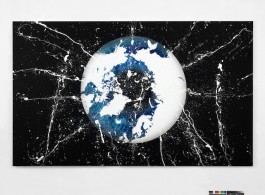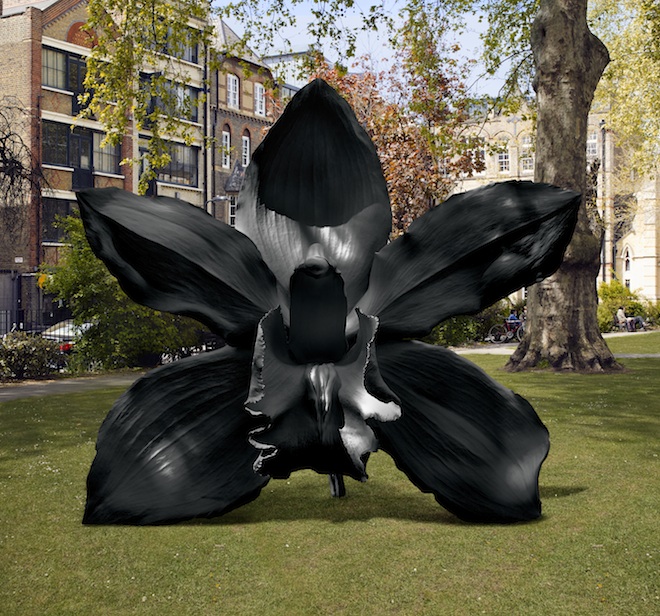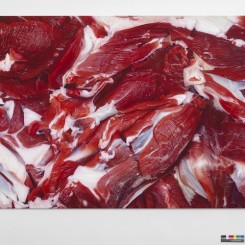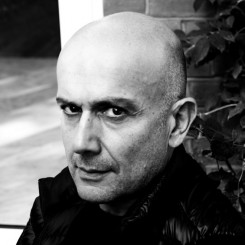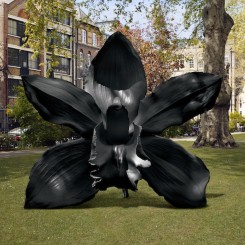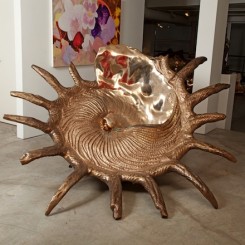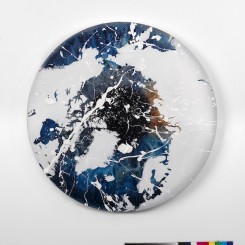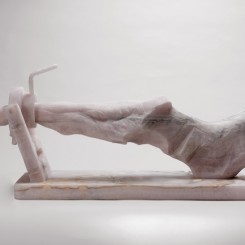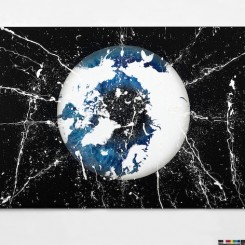Press release
White Cube Hong Kong is pleased to present ‘Held by Desire’, an exhibition of new works by British artist Marc Quinn. In this exhibition Quinn explores how desire shapes our universe and affects man’s relationship with nature. Investigating the boundaries between art, nature and the ‘man-made’, Quinn asks us to re-examine the world that surrounds us by taking a closer look at its raw and seemingly mystical elements.
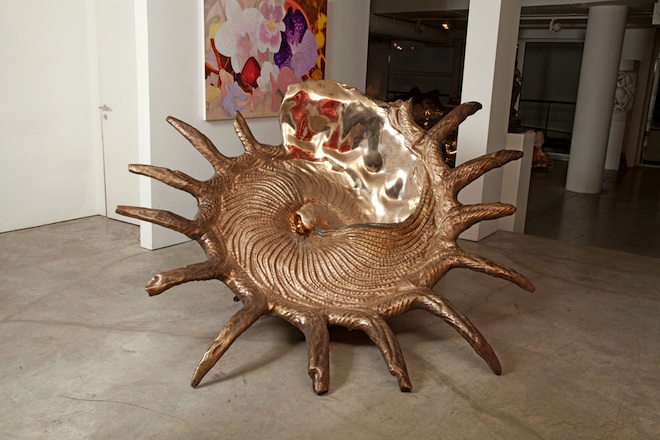
Marc Quinn,”The Architecture of Life”,bronze,53 9/16 x 92 1/2 x 66 9/16 in. (136 x 235 x 169 cm),2013
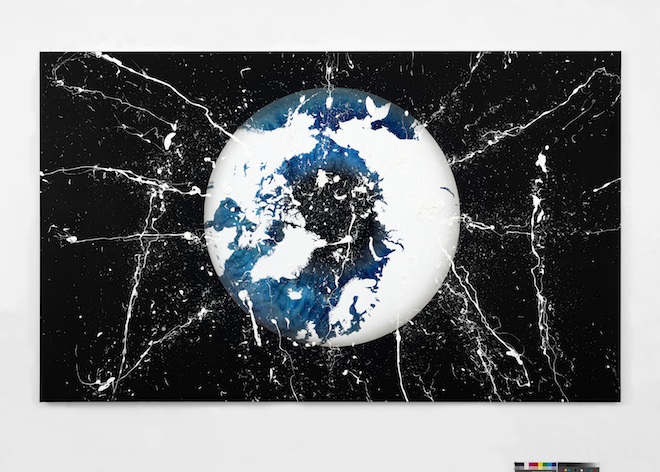
Marc Quinn,”Held by Desire”,oil on canvas,2013, White Cube Hong Kong, 8 November 2013 – 11 January 2014
The Architecture of Life (2013) is an enlarged bronze sculpture of a Stellaria solaris (Linnaeus, 1764) shell, that was created using 3D scanning technology. The shell is a found object, a complex form that was created by this invertebra for its own protection. Quinn’s sculpture seems to collapse time: its exterior, heavily marked by striations, is evidence of the passage of time past, whereas its highly polished, shiny interior suggests something new that reflects the present. Through its enlargement and transformation into sculpture, various questions start to emerge: is art always a man-made creation or is it something that exists in the world, simply waiting to be ‘discovered’ by man?
Held by Desire(Chinese Juniper 120) (2013), is another work that has been developed using 3D scanning technology. The work also uses a natural form, this time that of a 250 year-old Bonsai tree which is part of the artist’s own collection of plants. Historically used as a focus for contemplation, the Bonsai tree is, for Quinn, a microcosm of our relationship with nature: one in which human desire attempts to manipulate nature to its own ends, however, ultimately an un-tended Bonsai will return to its natural size and state.
The Invention of Carving (2013), is an oversized sculpture of a Spanish Serrano ham, carved out of pink onyx. Both this work and Towards a Map of the Universe (2013), were inspired by the famous slice of pork carved from agate, in the collection of the Taipei Palace Museum in Taiwan. Quinn’s sculpture of the ham, first carved in meat by the artist before being made in stone, also refers back to the Ice-Age animal bone carvings. In this work, Quinn marries the idea of our appetite for food with our appetite for art. The work seems to question whether they evolved simultaneously or developed out of one another and whether the original meat carving was for art or sustenance.
Quinn’s continued fascination with flowers is evidenced in the work Stealth Desire (Etymology) (2013), a large black painted sculpture of an orchid head. The flower is both threatening and vulnerable since its petals reach out above the viewer but is also simultaneously delicate and beautiful in the exactness of the detailed rendering of the surface veins. At its centre the orchid’s very prominent reproductive system is a reminder that reproduction is the ultimate driving force for all living organisms.
The Eye of History paintings (2012-ongoing) are a series of works that depict human irises on a magnified scale, with maps of the world superimposed upon them. These works attempt to navigate the interaction between man and the planet. For example, in The Inner Eye (Beginning of the Ice Age)(2013), the land mass is painted white as if it were a drifting iceberg, perhaps addressing the debate on how man-made energy sources are constantly impacting on the already shifting surface of the planet.
In the painting Past, Present and Future (2013), Quinn continues to explore the border between abstraction and representation, the grotesque and the beautiful. Seductively reclining against a background of raw meat, echoing the pose of the female nude in Manet’s Olympia (1863), Lara Stone’s gaze challenges the viewer/voyeur. Contrasting with this painting but also sharing the same agitated surfaces, the Before and After Human series (2013 –ongoing) depicts the powerful churning sea water from which all life has come. The entire cycle of life is present in these paintings as it is in the exhibition as a whole, an attempt to reflect back to us our paradoxical selves in the mirror, controlled and held by our own desires.

